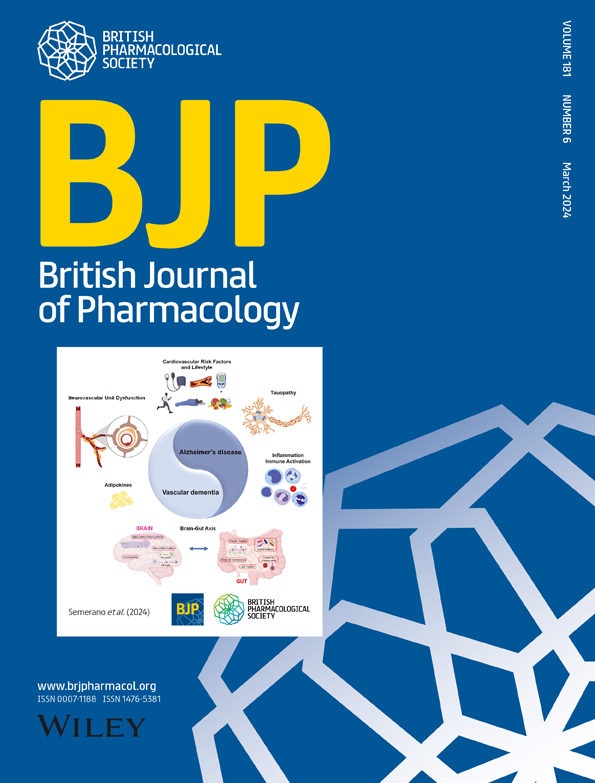Chicoric acid exerts therapeutic effects in DSS-induced ulcerative colitis by targeting the USP9X/IGF2BP2 axis
Abstract
Background and Purpose
Chicoric acid, a hydroxycinnamic acid, exhibits anti-inflammation activities. However, the specific mechanisms underlying the effects of chicoric acid on dextran sulfate sodium (DSS)-induced colitis remain unclear. Here, we aimed to elucidate the molecular mechanisms underlying the protective effects of chicoric acid in DSS-induced colitis.
Experimental Approach
Mice with DSS-induced colitis (UC mice) were treated for a week with chicoric acid. Symptoms of colitis, colonic pathology, inflammation-related indicators, and intestinal mucosal barrier function were evaluated. RNA sequencing was performed on colon tissues to obtain differentially expressed genes. The deubiquitinating enzyme USP9X was selected, and the inhibitory and targeting effects of chicoric acid on USP9X were subsequently determined. In vivo and in vitro, DSS-induced colitis was treated with USP9X inhibitors WP1130 and EOAI3402143. Ubiquitination label-free quantitative proteomic analysis was performed to identify protein peptides that may undergo de-ubiquitination by USP9X. Co-immunoprecipitation (Co-IP), immunohistochemistry and western blotting were used to validate in vivo and in vitro results.
Key Results
Chicoric acid significantly alleviated clinical activity and histological changes, inhibited pro-inflammatory cytokine production and improved integrity of the intestinal barrier in UC mice. Moreover, chicoric acid suppressed USP9X expression in colonic tissues from UC mice. Furthermore, USP9X contributed to promoting the onset of UC and that insulin-like growth factor 2 mRNA-binding protein 2 (IGF2BP2) was deubiquitinated by USP9X.
Conclusion and Implications
Chicoric acid ameliorated DSS-induced colitis by targeting the USP9X/IGF2BP2 axis, indicating that targeting the USP9X/IGF2BP2 axis presents a promising and innovative therapeutic approach for the treatment of UC.
LINKED ARTICLES
This article is part of a themed issue Drugs and Drug Targets in Metabolic and Chronic Inflammatory Diseases. To view the other articles in this section visit http://onlinelibrary.wiley.com/doi/10.1111/bph.v182.20/issuetoc





 求助内容:
求助内容: 应助结果提醒方式:
应助结果提醒方式:


